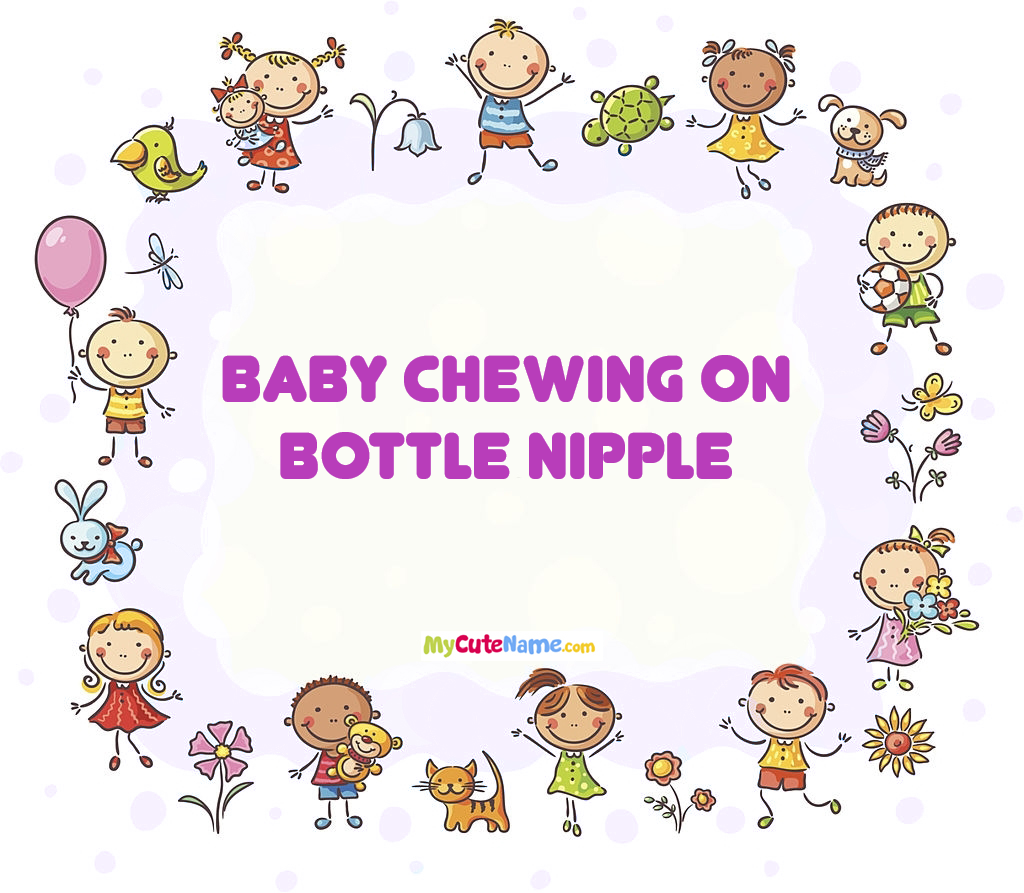


When babies begin to chew on their bottle nipples, it can be concerning for parents. This behavior may raise questions about their oral development, comfort, or even the suitability of the feeding equipment. Understanding why babies chew on bottle nipples and how to respond to this behavior is crucial for ensuring their well-being and addressing any underlying needs they may have.
Keep those lips sealed
A proper latch on the bottle nipple is crucial for various reasons, including the development of facial muscles, minimizing leakage, and ensuring efficient feeding. It also helps prevent excessive air intake, which can reduce spit-up and alleviate discomfort from gas. If your baby consistently disengages from the bottle, chews on the nipple, or experiences milk leakage from the corners of their mouth, it might indicate an incorrect or weak latch. For more insights on bottle latch techniques and how to ensure your baby is feeding correctly, delve deeper into our article, "Bottle latch: How do I check if my baby is feeding correctly."
Go with the flow
For younger infants or those still mastering the art of drinking from a bottle, chewing or chomping on the nipple may serve as a way to manage the milk flow. Signs such as breathlessness or prolonged breaks during feeding sessions could indicate that the flow rate of the nipple is too high for them to handle. Adjusting to a slower flow rate allows them to regulate their feeding pace, potentially reducing chewing behavior and promoting more efficient drinking. Conversely, if your baby appears uninterested or fatigued and repeatedly disengages from the nipple, it might suggest that the flow rate is too slow. In such cases, they may become frustrated with the effort required to extract milk and lose interest in feeding altogether. By slightly increasing the flow rate, you can reignite their appetite and encourage more active feeding.
Curious baby
Transitioning from breastfeeding to bottle feeding can be a challenging adjustment for your curious little one. Despite the advancements in bottle technology, the introduction of a silicone or rubber nipple may still feel foreign compared to the familiarity of breastfeeding. As a result, it's not uncommon for babies to express their curiosity by chewing or chomping on the bottle nipple initially. While this behavior may cause concern, it's important to remember that it doesn't necessarily indicate long-term rejection. With patience and perseverance, most babies can adapt to bottle feeding relatively quickly. However, if your baby consistently refuses the bottle and consequently struggles to consume enough milk, seeking guidance from a lactation consultant or pediatrician may be beneficial to address any underlying issues and ensure adequate feeding.
Terrible teething
Teething can be a challenging milestone for both babies and parents, often leading to discomfort and fussiness. The smooth and firm texture of a bottle nipple can offer temporary relief to a teething baby, providing something safe and soothing to chew on. While it's natural for babies to seek relief from teething discomfort by chewing on various objects, including their bottle nipples, it's essential to ensure that they are still able to drink enough milk for nourishment. Teething is a normal part of a baby's development, and while it may lead to some temporary changes in feeding behavior, most babies will eventually stop chewing on their bottle nipples once their teeth start to emerge. Providing gentle care and comfort during this time can help ease your baby's teething discomfort and ensure they continue to receive the nutrition they need.
Conclusion
In conclusion, babies chewing on bottle nipples is a common behavior that can have various reasons behind it, from teething discomfort to adjusting to new feeding routines. While it may pose some challenges, such as potential changes in feeding patterns or nipple confusion, with patience and understanding, most babies will adapt over time. It's essential for parents to monitor their baby's feeding habits and seek guidance from healthcare professionals if concerns arise. Ultimately, providing comfort, support, and appropriate teething relief can help both babies and parents navigate through this developmental stage.
Note: Please also check your spam or junk email folder.